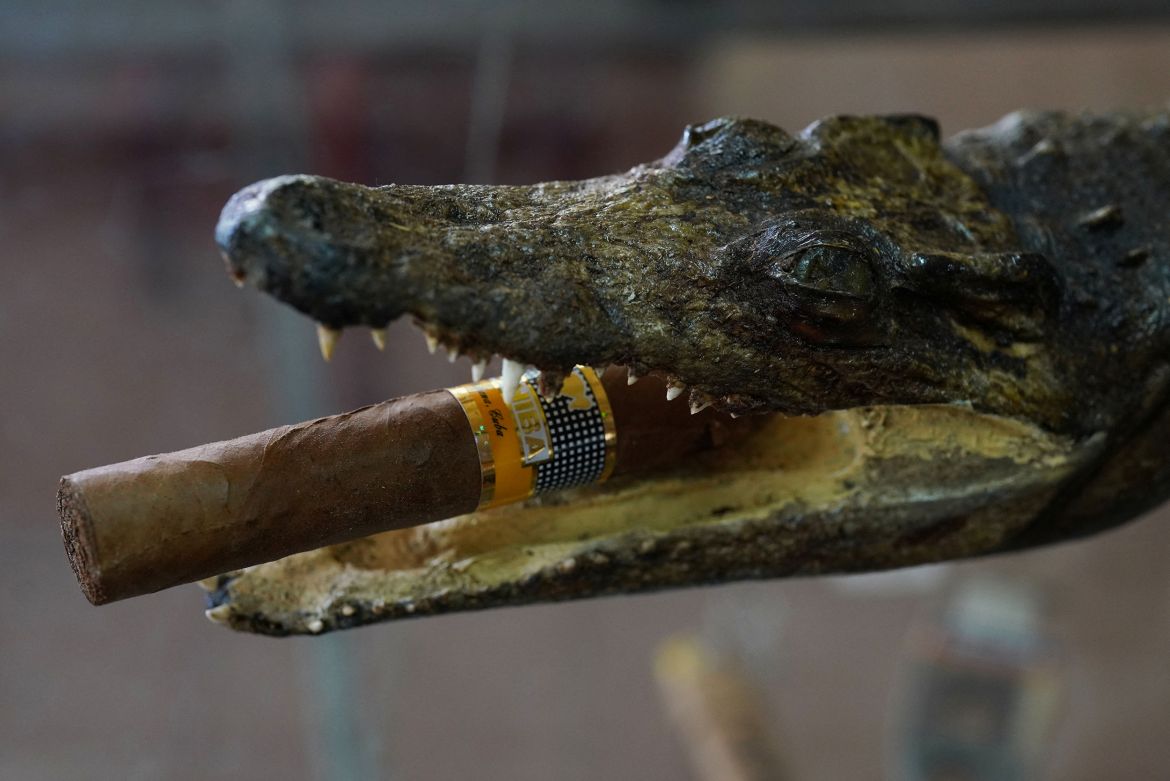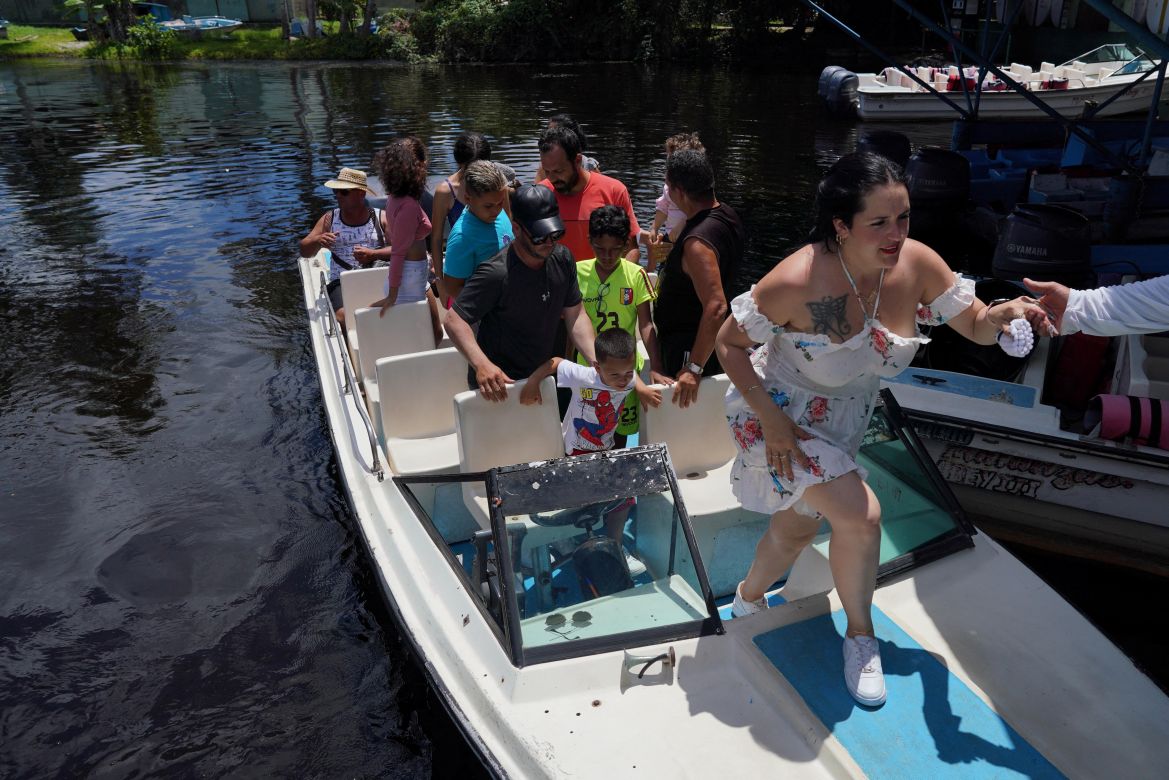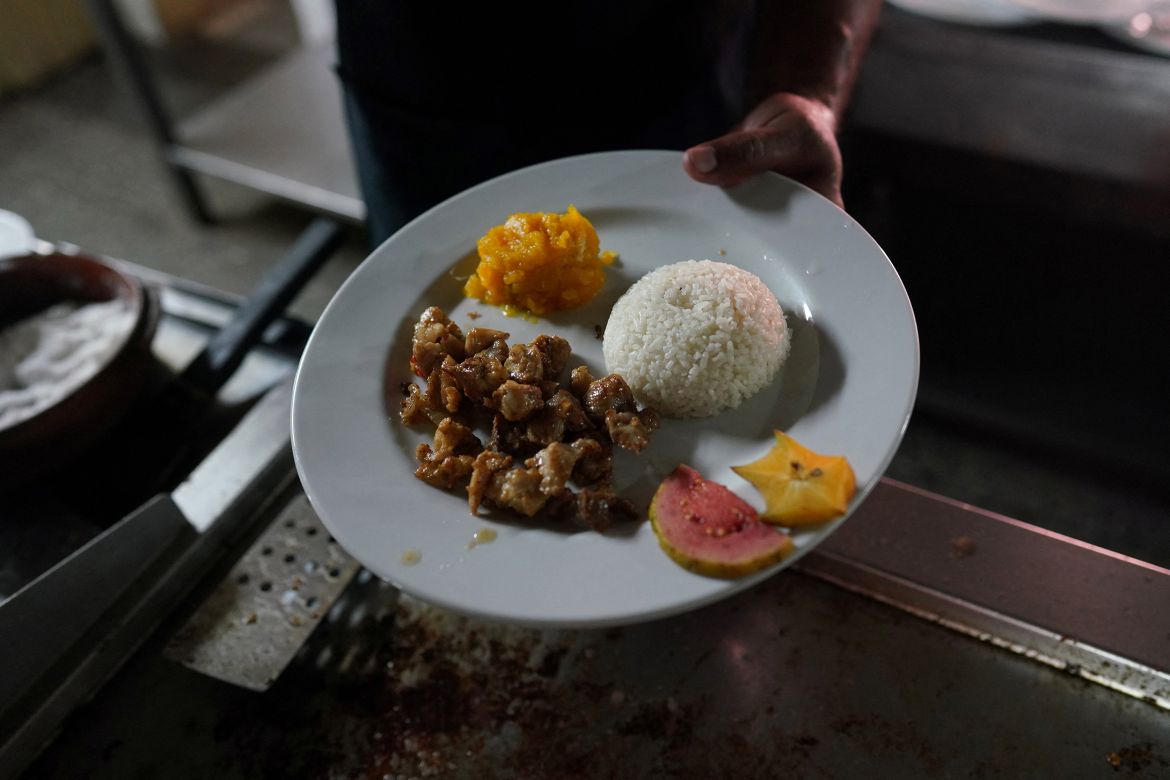In Pictures
Photos: Scientists race to save Cuban crocodiles
Illegal hunting, warming climate, and interbreeding threaten Cuban crocodile species.

Shirtless and waist-deep in the dark waters of Cuba’s palm-speckled Zapata Swamp, researcher Etiam Perez releases a baby crocodile confiscated from illegal hunters back into the wild.
It is a small victory in a bigger battle, he told the Reuters news agency. Cuban crocs, an endemic species found only in Zapata and in another swamp on Cuba’s Isle of Youth, are critically endangered and have the smallest natural habitat left of any living crocodile species, according to scientists.
Illegal hunting and hybridisation with American crocodiles – which muddles the species’ genetics – have for decades threatened populations here. A warming climate, which alters the sex ratio of newborn crocs, poses a new threat.
“We are trying to bring them back from the edge of extinction,” Perez said.
And despite the fact that the Cuban government has protected virtually all of the vast swamp – widely considered to be the best preserved in the Caribbean – that may still not be enough, scientists have said.
“When you compare the Cuban crocodile with other species in the world, its house is very small,” said Gustavo Sosa, a Cuban veterinarian at Zapata.
Cuban scientists estimate that around 4,000 Cuban crocodiles live in the wild. But because the area they prefer within the wetland is relatively small, a climate-related disaster – increasingly common now globally – could wipe out most of the population.
Those concerns decades ago prompted the Cuban government to underwrite a hatchery programme that annually releases several hundred crocodiles into the wild. Researchers like Perez also liberate crocodiles confiscated from hunters as part of a programme that has helped reduce poaching of the species.
The sale of crocodile meat in Cuba is tightly controlled by the state, and only those crocodiles with physical defects or hybrid genetics, for example, are allowed in restaurants.
An illegal market, however, can still be found in some areas, particularly around the swamp.
Fuel shortages, antiquated equipment and often inhospitable conditions are constant challenges in Cuba, a Caribbean island nation gripped by a dire economic crisis.
But at Zapata, those concerns feel distant as this year´s crop of freshly hatched crocs, still covered in mucus from their eggs, snap their jaws at pieces of fresh river fish, moving in unison as they discover their new world.









